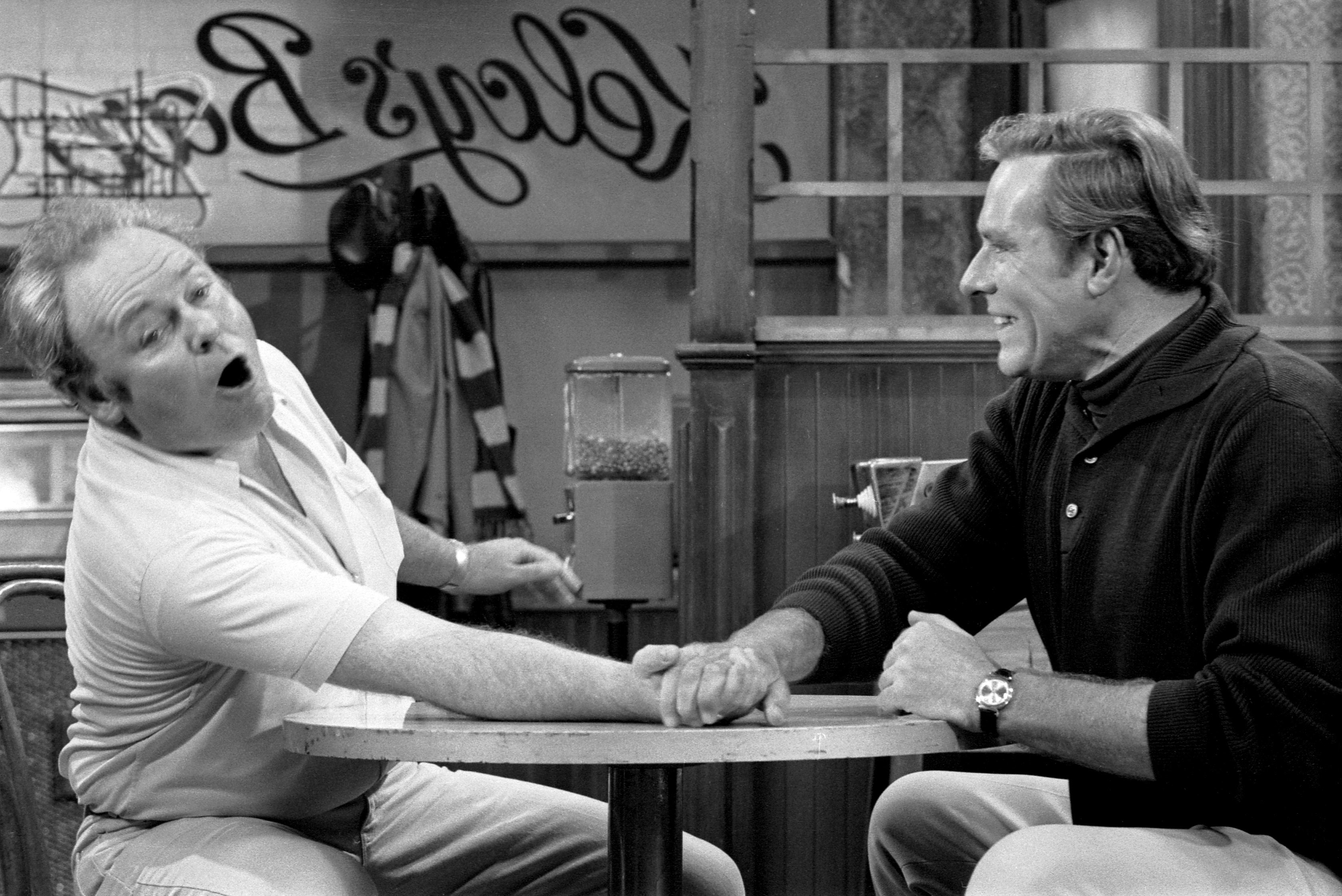
When you think of All in the Family, you think of one character: Archie Bunker. Portrayed by Carroll O’Connor, Archie was loud, opinionated, and unapologetically bigoted. He was the kind of character that viewers either loved or hated, but what made him so compelling was that, despite his many flaws, he represented something much deeper. Archie Bunker was, in a sense, the voice of an entire generation—one that was grappling with a rapidly changing society.
The beauty of All in the Family was that it didn’t simply condemn Archie for his bigotry. Instead, the show used him as a lens through which to examine the prejudices of the time, and perhaps even the prejudices of the viewers themselves. Archie was a character who said things that many people might have thought but were too afraid to say out loud. And in doing so, he forced the audience to confront their own biases and question their beliefs.
The Paradox of Archie Bunker
At first glance, Archie might seem like the typical sitcom patriarch—a gruff, no-nonsense father who’s constantly at odds with his liberal son-in-law Mike. But beneath the surface, Archie was a much more complex character. He wasn’t just a caricature of the bigoted, working-class man—he was a symbol of the deeply entrenched attitudes of an America in transition.
Archie’s racism, sexism, and homophobia were often portrayed as outdated, but the show made it clear that these attitudes were not just relics of the past; they were alive and well in the present. This was one of the most radical aspects of All in the Family—it didn’t just laugh at Archie; it forced the audience to look at the real-world implications of his views. As absurd as some of his opinions were, they weren’t too far removed from the reality of the time.
Why Archie Bunker Resonates Today
Even today, in our more progressive society, Archie’s views still echo in certain pockets of American life. In a world where political polarization and social divides are more pronounced than ever, Archie Bunker’s character feels surprisingly relevant. His reluctance to accept change, his fear of what’s different, and his stubbornness in the face of progress are traits that still exist in people today. All in the Family wasn’t just a show about a man struggling to accept a changing world—it was about all of us, and how we come to terms with that change.
The beauty of Archie’s character is that he wasn’t portrayed as purely evil or irredeemable. He was a product of his upbringing, his environment, and the times he lived in. In many ways, he was just a reflection of the larger societal issues at play. All in the Family made us laugh at Archie, but it also made us reflect on the biases that existed in society—and maybe even in ourselves.
The Genius of Carroll O’Connor
Carroll O’Connor’s portrayal of Archie Bunker is one of the most iconic performances in television history. What O’Connor did so brilliantly was to make Archie both despicable and lovable at the same time. He showed the character’s vulnerability, his love for his family, and even his fears about a changing world. This complexity is what made Archie so compelling, and what made his character such a powerful vehicle for social commentary.
O’Connor’s ability to balance comedy with serious issues is what set All in the Family apart from other sitcoms. The show didn’t shy away from hard truths, and it didn’t try to soften Archie’s character. Instead, it let him be who he was, flaws and all. And in doing so, it made the audience realize that, even with all of his prejudices, Archie wasn’t just a stereotype. He was a real person, and the issues he represented were real issues.
A Lasting Legacy
Archie Bunker may have been a bigot, but he was also a cultural touchstone—a character who, in many ways, spoke for a generation. His legacy lives on not just in All in the Family but in the countless TV characters who followed in his footsteps. Through Archie, we learned that television could be both funny and thought-provoking, entertaining and socially conscious. Archie Bunker might not have been perfect, but in the end, neither was America.
